The RPS 100: our top PC games of all time (50-1) - Rock Paper Shotgun
Welcome to Part Two of The RPS 100, our brand-new annual countdown of our favourite PC games of all time. Hopefully, you've just read Part One, where we counted down numbers 100-51. Here, we're into the final stretch, ranking numbers 50 to our ultimate Bestest Best at number 1.
Before we get into the top 50 games of The RPS 100, here's a brief reminder of the rules, in case you've sneakily skipped straight here without reading part one first. Rather than create a list of the best PC games you can play right now, The RPS 100 aims to celebrate the greatest games from across the ages. It's not a ranking of the most important or influential games of all time, but rather our collective Bestest Bests, as voted for by the RPS staff and some of our finest contributors.
For the most part, we've limited ourselves to one game per series in order to reflect the breadth and variety PC gaming has to offer - although, as I mentioned in part one, there is one exception to this. See if you can spot it.
Remember, if there's a favourite game of yours we haven't included, know that it's at number 101. Indeed, why not write your own celebration of your all-time Bestest Bests in the comments below, so you can convince others (and us) to give it a try. Perhaps it will make an appearance next year. For now, though, please enjoy the second part of our very first RPS 100.
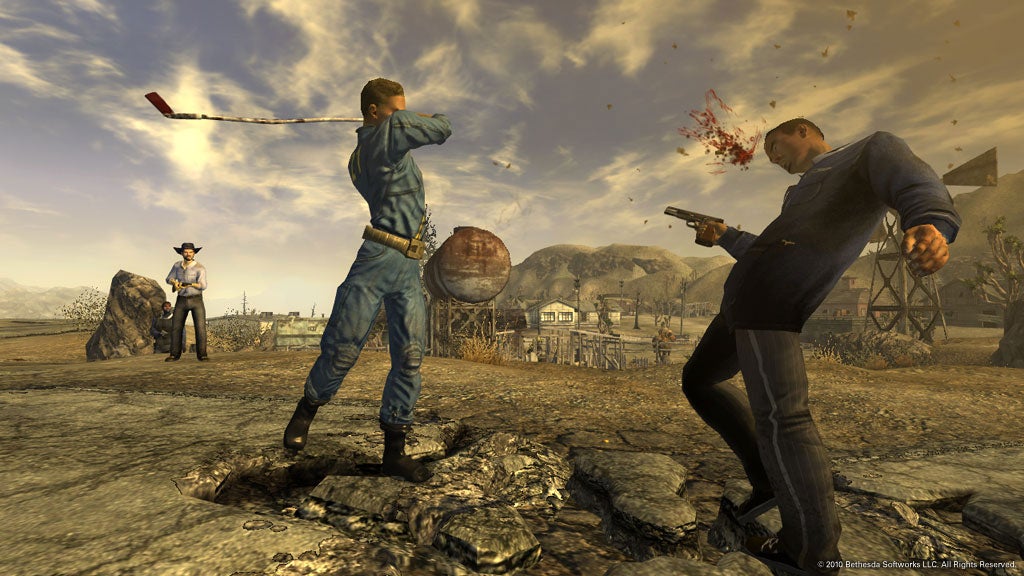
You've been shot in the head. But when has that ever stopped you? The nuclear wasteland has been traipsed upon by many a Fallout game, but New Vegas is the one with heart. Essentially a road trip with quite a lot of detours, this first-person shooter RPG entrusts you with the future of Nevada, including a revived city of gamblers and rogues. Highlights on this tour of the radioactive desert include: being shot at by a sniper embedded in a dinosaur's mouth, finding a bunch of people crucified by men dressed as Roman centurions, cracking the skull of the blazer-wearing scumbag who put a bullet in your brain and left you in a ditch. This makes it sound all action. In reality, much of New Vegas is spent jabbering. Thanks to the complex branching storytelling that other Fallout games neglected, talking your way through some conflicts is a viable strategy. See for yourself, postie. Pay a visit to the megalomaniac who has styled himself after Caesar, and try to play him off against the army of prissy Californian soldier boys. It'll probably work out.
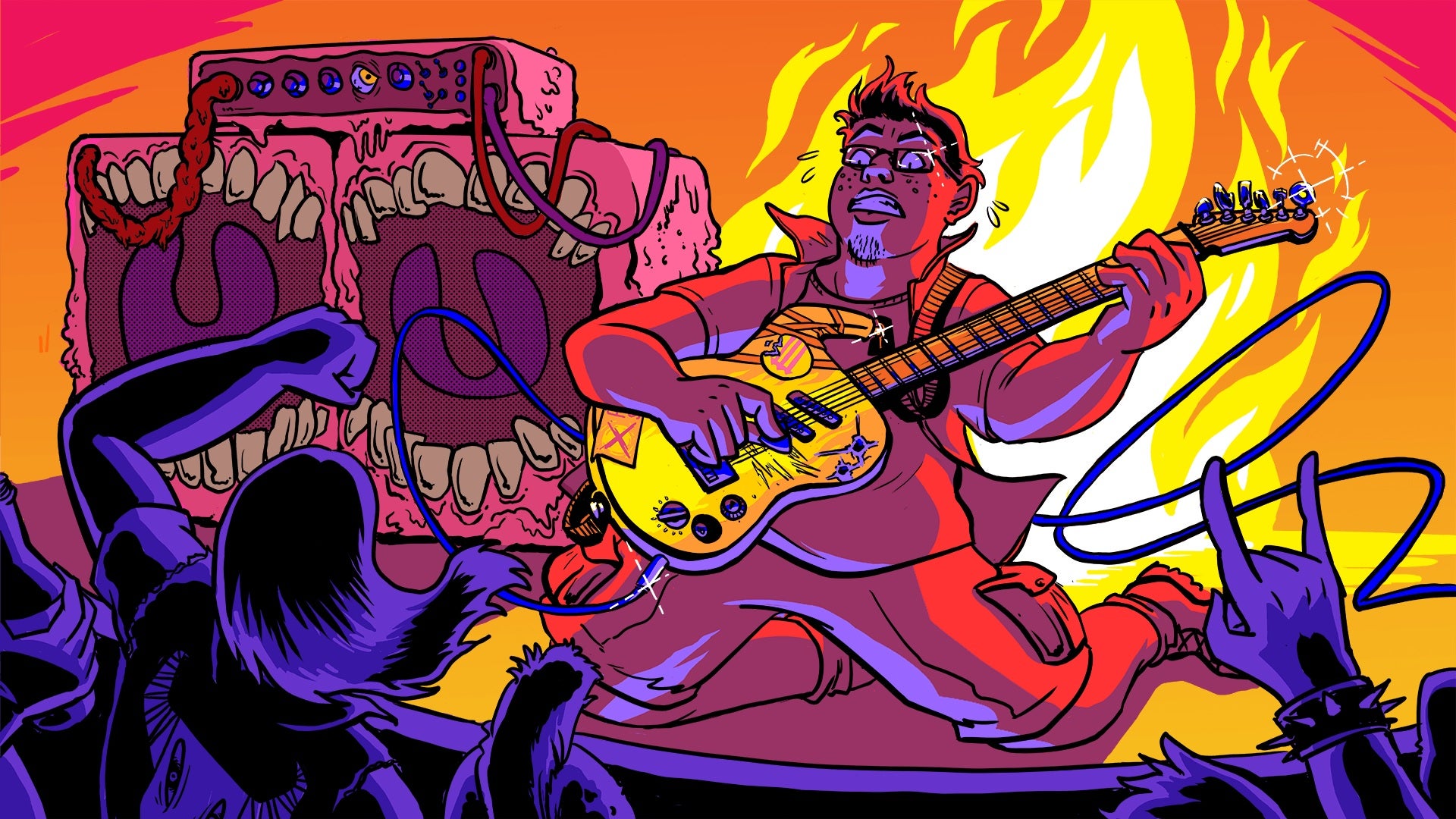
Clamber into your meatsuit, friend. It's time to kill some fascists. This is a visual novel about a group of gay messes served up with some top-down mech brawling. Oh, and the mechs are made of meat. Its story of a band of multicoloured friends united against hate-spewing neonazis is being told as a serial. At time of writing the gang is going on a quest to "steal the sun". The combat itself is a rough, crudely implemented Sumo battle where you have to push your enemy's fleshmech into ditches and off cliff edges, using a big whiplike attack and managing your stamina. There's not much else to it. You may ask yourself: neonazis, gore, queer rebels - isn't it all a bit on the nose? Friend, the developer's motto is "subtlety is for fuckers". You're here to bash fash. Get in the damn meat suit.
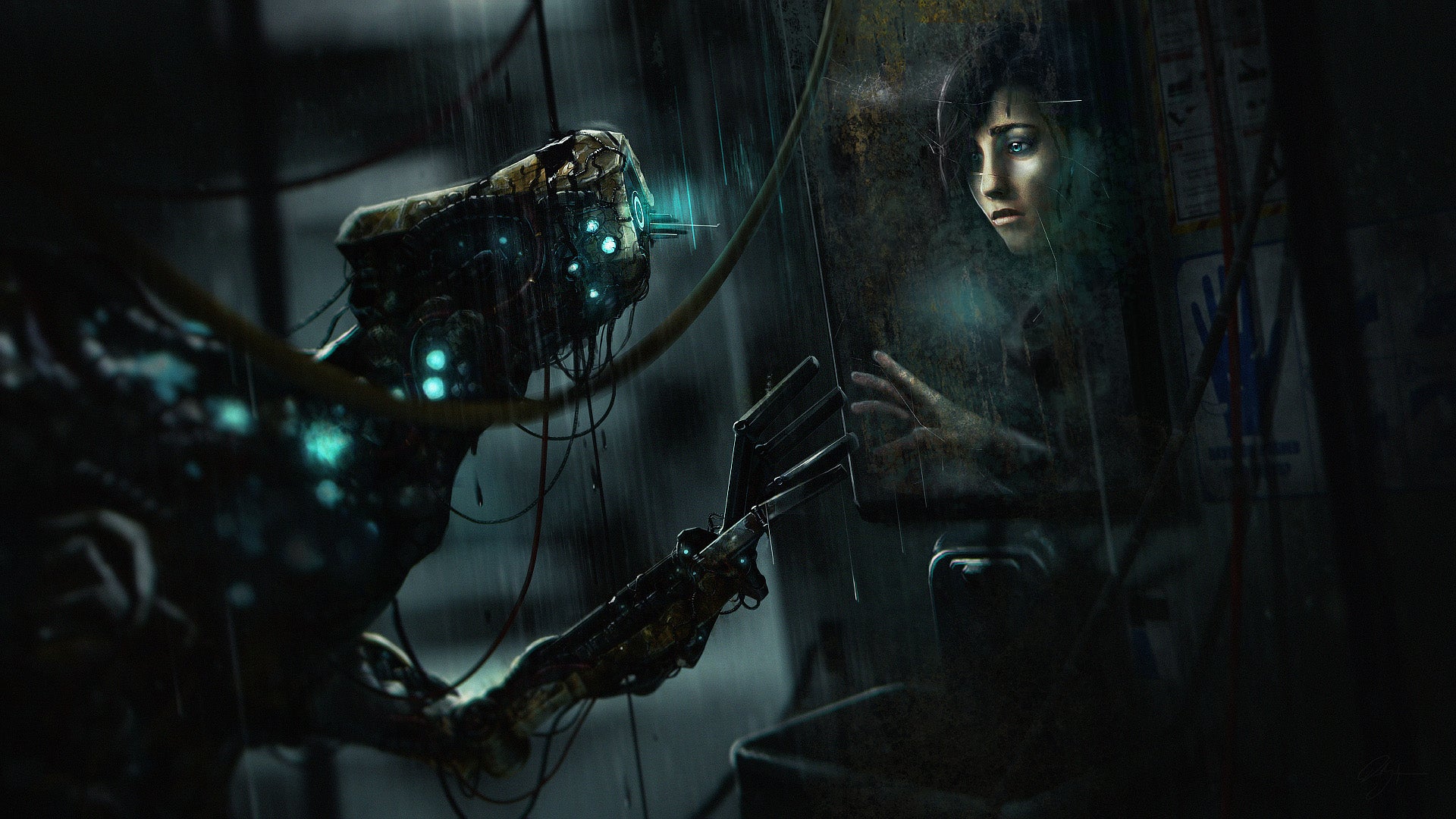
Sci-fi horror at the bottom of the sea, from the same developers as Amnesia, the first-person horror series about forgetting things and hiding in cupboards. In Soma, the horror is two-fold. There are the disturbing monsters that make your screen tremble and go bleary with fear, yes. But more importantly, there is the constant gnawing fear of its unravelling premise. You are an average Joe who goes for a fancy MRI scan and finds himself waking up in a deep sea facility 100 years in the future. That mysterious, but not totally frightening. But as you tramp through the zapping, messy remnants of a malfunctioning research station, you start to realise the facts. With each onward step the story cranks up the existential dread. This is an unsettling game about an identity crisis like no other, and it has the punchy ending BioShock wishes it had. A last-minute gamble that will leave you both satisfied and troubled at once.
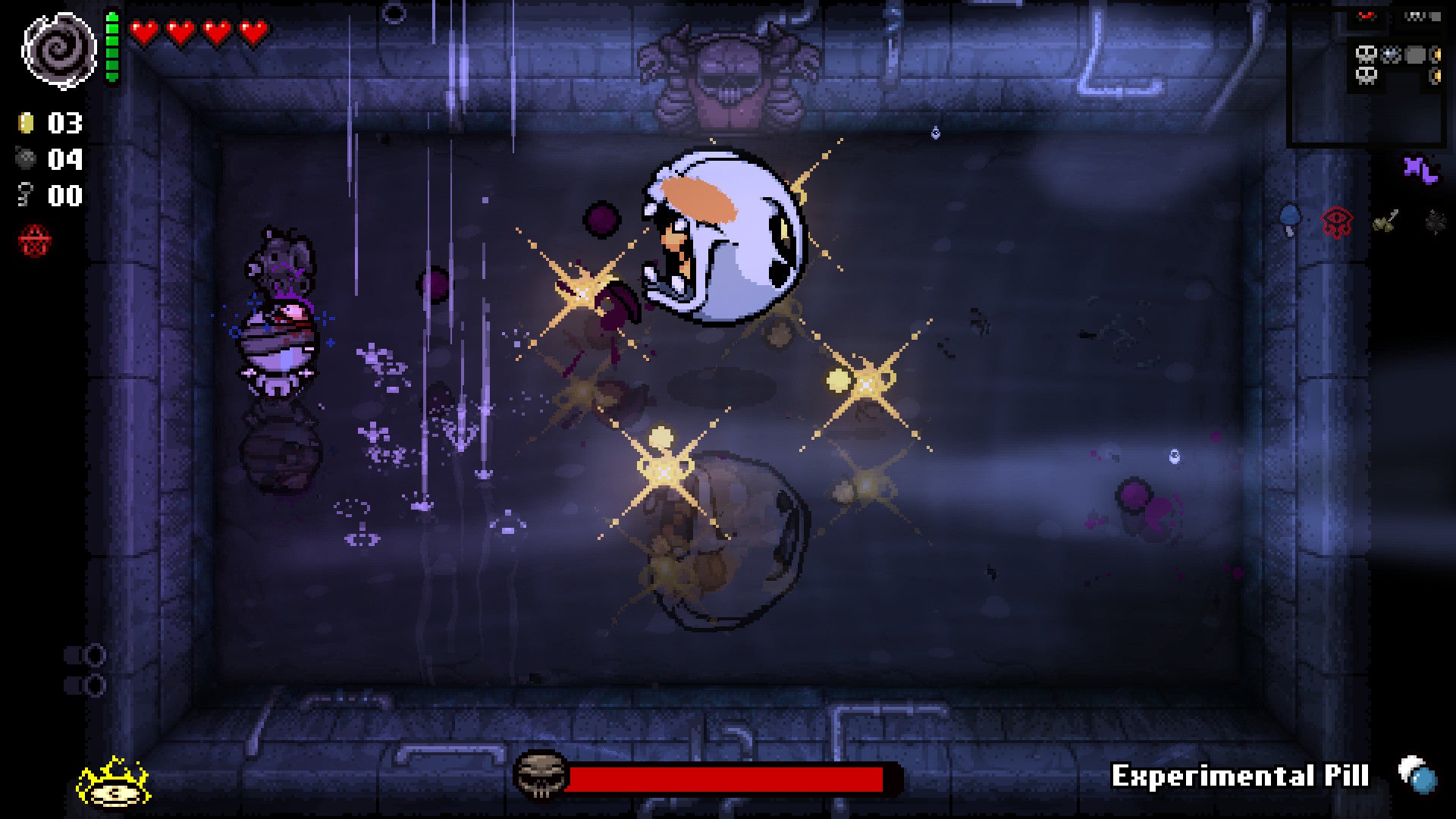
Yes, I know: poo. I understand Isaac's edgy dressing repels many but I now barely notice the poo, the wee, the bibles, and the satans. As my naked dead child dodges aborted fetuses and weeps aggressively at jobbies, I mostly see enemy patterns, room layouts, item combinations, rules governing secrets, and ways to bend the odds in my favour. The roguelikelike dungeon-crawler is an awesome system to have slowly duplicated as a model running inside my head, a joy to know and still a joy to play after— let me check— 1344 hours. I still relish building ludicrously broken runs, or pulling off wins even when I pull straight trash. And, honestly, I quite like the repressed Christian childhell.
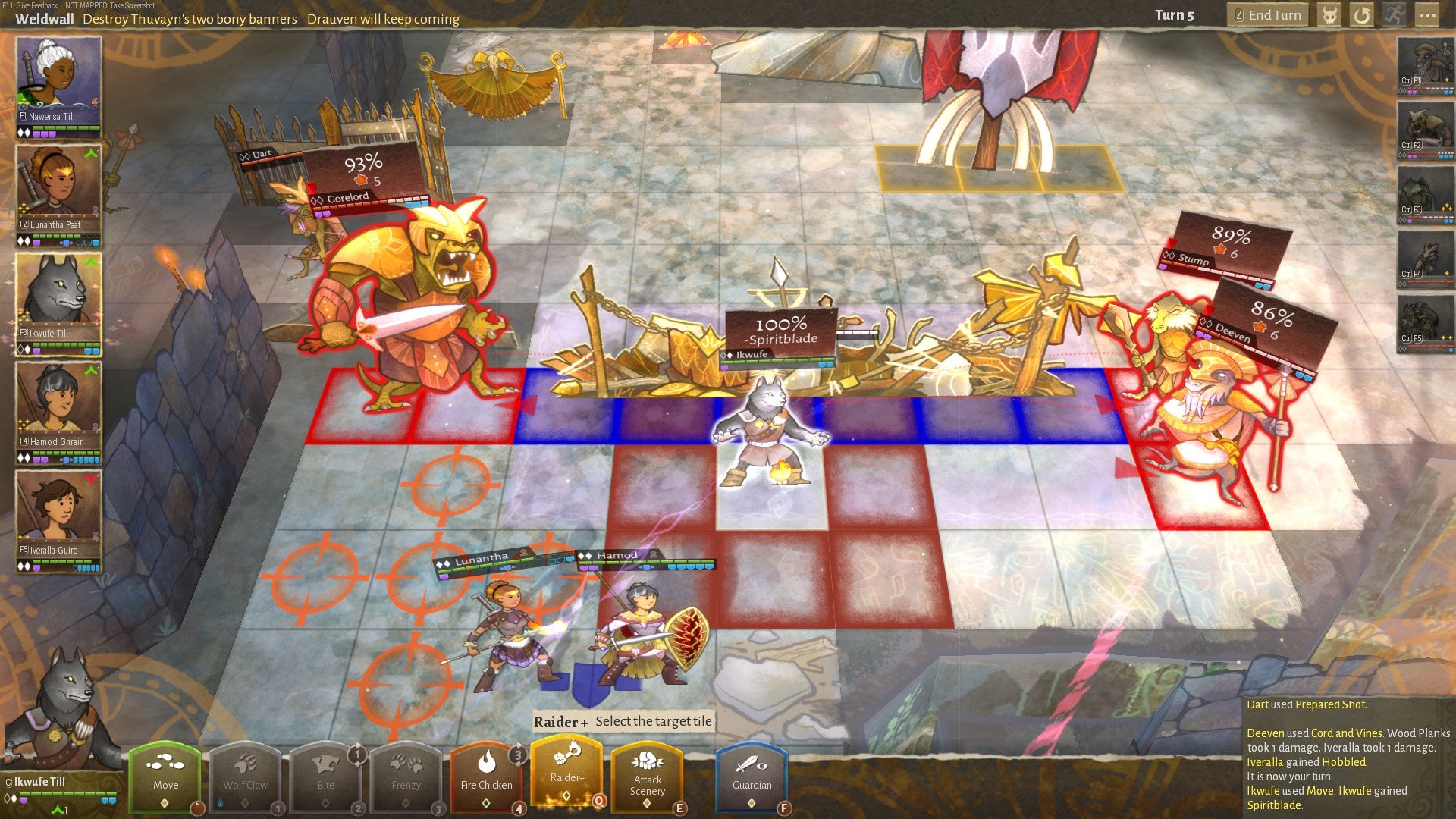
Wildermyth is a genuine marvel. On the surface, it's a tactical turn-based RPG about shepherding a bunch of would-be adventurers around a fantastical world full of monsters. Its battles scratch all those lovely strategic itches you know and love - the flanking bonuses, the cover tiles, the adjacency-depending support skills - but it's also one of the best story generators of the last decade. Thanks to the dozens upon dozens of scripted micro-stories that play out over the course of its story - all based on your characters' personality traits, skills, background, relationships and your own decisions, I might add - Wildermyth's narrative ambitions put other RPGs to shame. You never play the same game twice in Wildermyth, and once you've experienced it, you'll never want to go back to the humdrum tomes of other Tolkien-esque fantasies ever again.
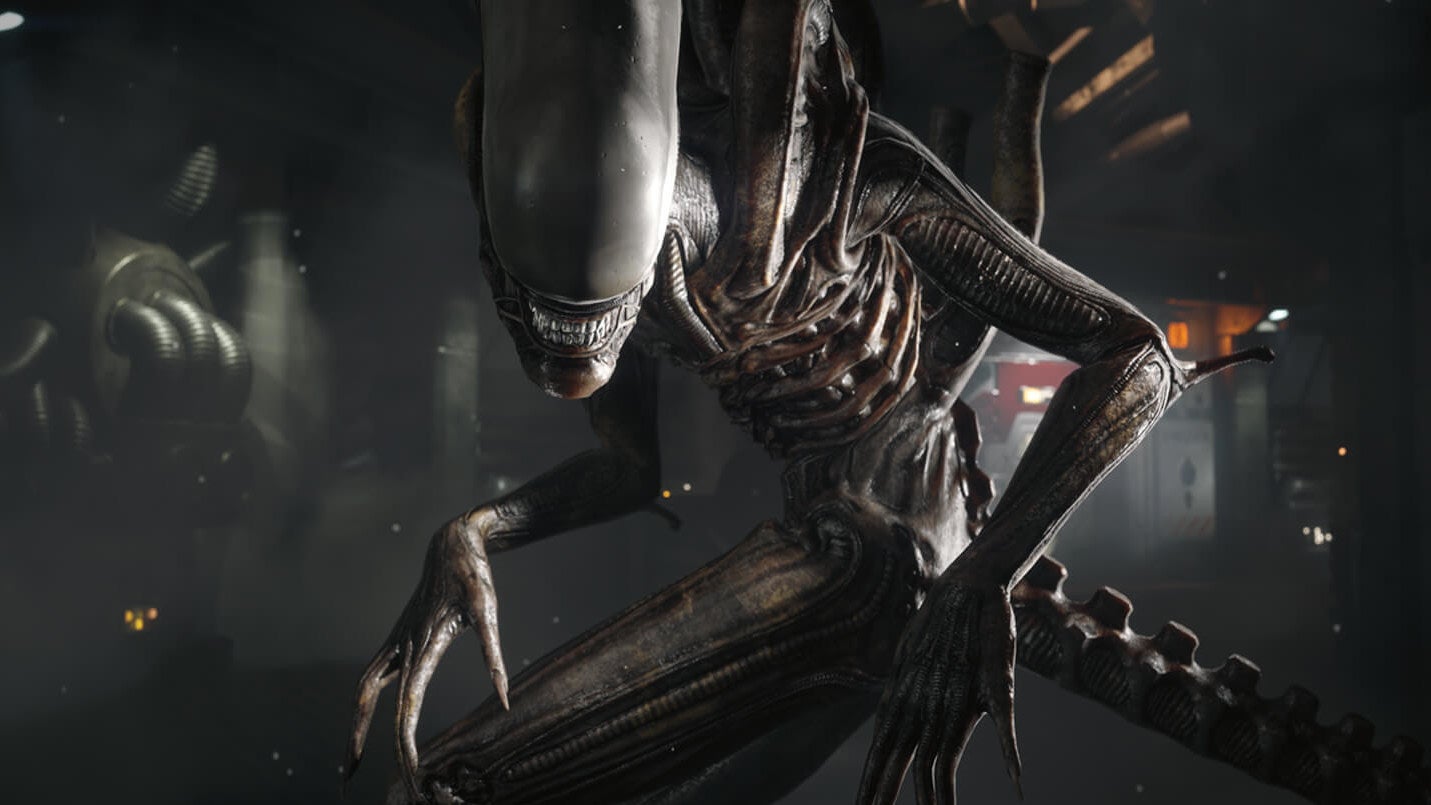
It is the perfect organism, unclouded by conscience, remorse or morality. You are an underpaid engineer, with a big can wot makes noise. Alien: Isolation is the best video game based on everyone's favourite phallic monstrosity. You play as Amanda Ripley, daughter of the lead character from the Alien movies. She's part of a team investigating the seemingly derelict space station Sevastopol. From the slow-burning and tense opening to a teeth-gritting finale, Isolation stuffs in a whole lot of stealth, terror and holding your breath in cupboards so the big bad doesn't hear you. A Xenomorph on the loose is only one of your worries. There are frenzied human stragglers and malfunctioning androids to watch out for too. But crank up the volume on that noise-making can and get ready to chuck it, because you'll soon learn the trick to making your way past these foes: the alien isn't picky about what it eats.
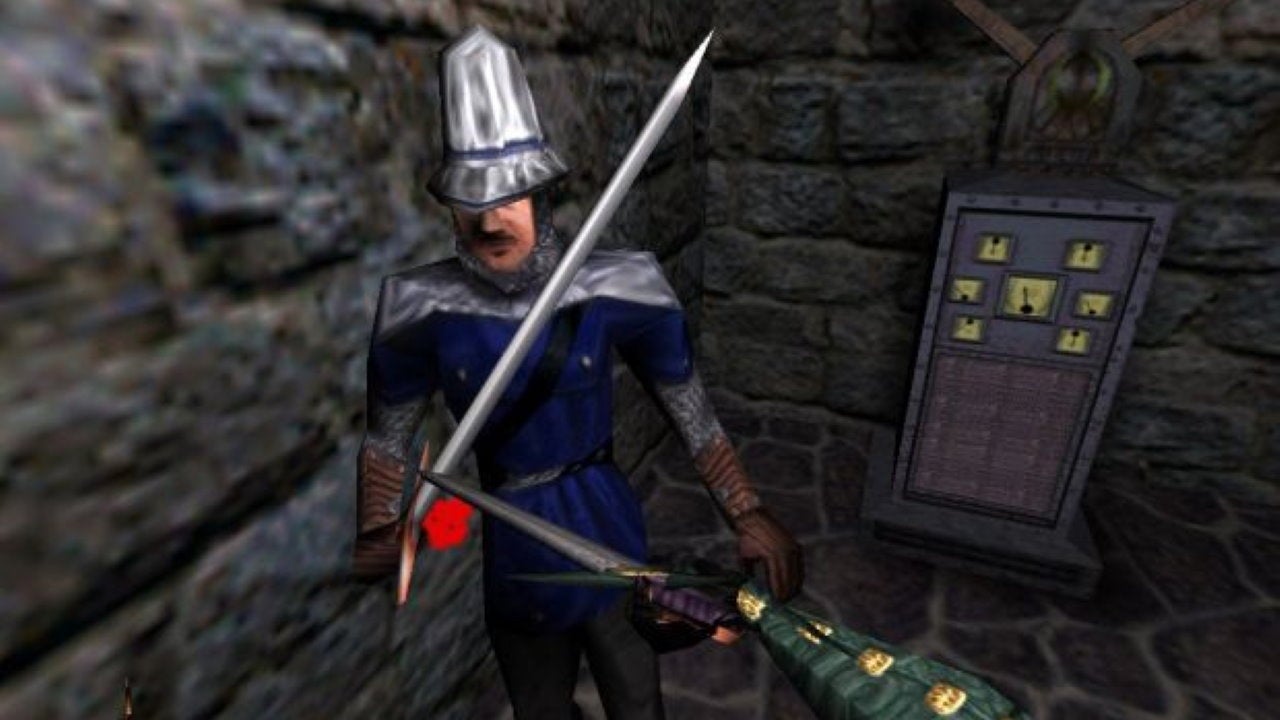
This is a first-person sneak 'em up about bonking guards in the back of the head and scuttling along the rafters, trying to get that bit closer to a treasured possession that belongs to mechanical weirdos or pagan street-fighters (two of the sects that inhabit the game's Victorian-meets-Medieval city). Step on a loud wooden floor and a guard is likely to spin round and spot you. Better to lurk in shadows, tiptoe on soft carpets. The world has undergone a religious schism, and you might need to play the previous Thief to understand every detail of plot here. But if it is simply a gloomy creep around a canal you're after, or a bank heist where you don't need to kill a soul, know that Thief 2 drew up the blueprints for all heists afterwards.
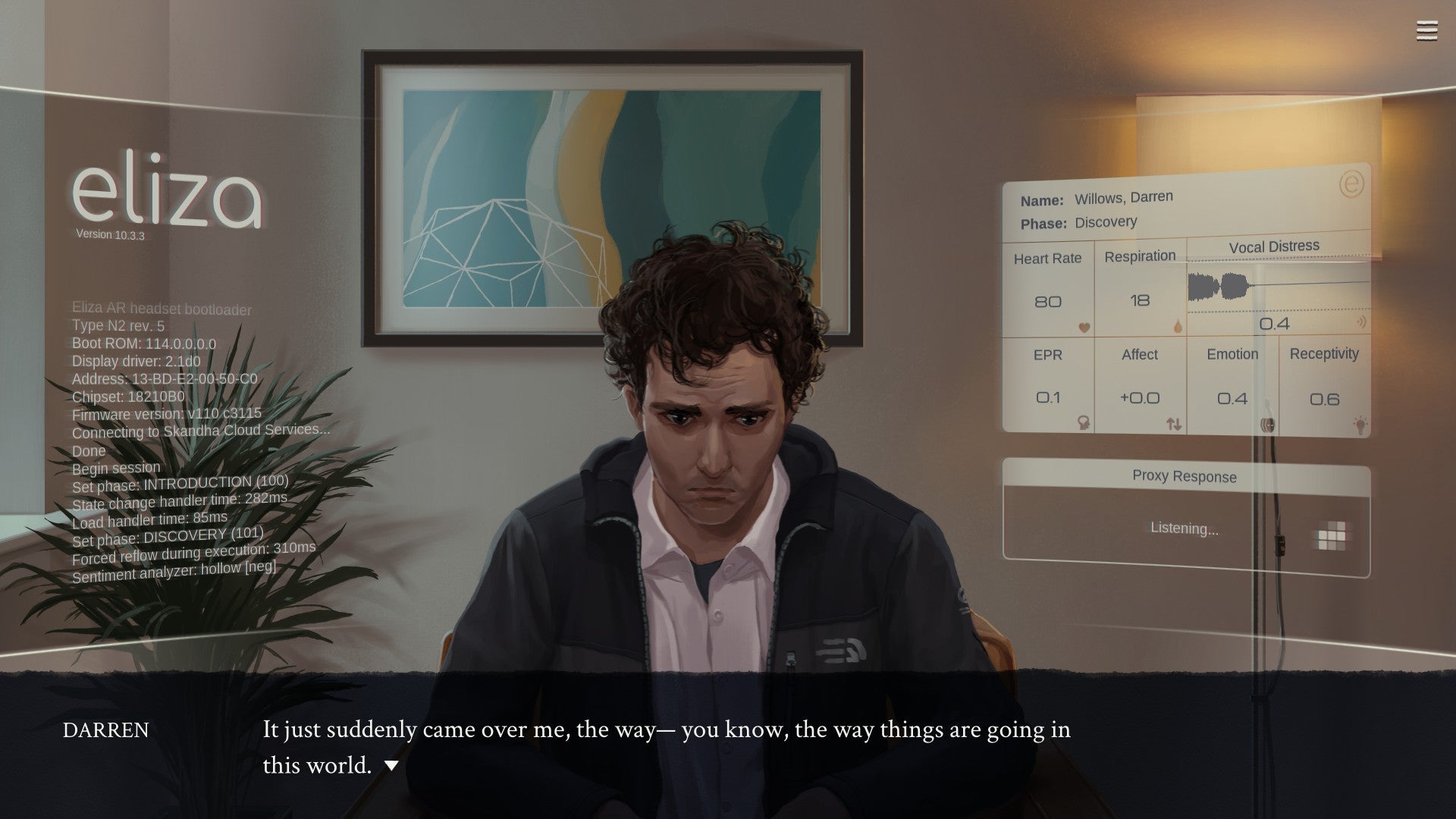
For all that TV shows like Black Mirror are mocked for boiling down to a simplistic, "What if technology… but too much?!", that question is an interesting one to ask when you apply it well, and to interesting concepts. In Eliza, a challenging yet uplifting visual novel, you play as Evelyn, who now works as the human proxy for Eliza, an AI counselling programme that generates things for Evelyn to say to 'clients'. At first you must pick from the list of Eliza-written responses, but later Evelyn has the option to go off-script, with all the potential effects that implies. Eliza is not only beautiful to look at, but compelling to play, and asks difficult questions - right down to your clients being clients, not patients. Is something better than nothing? Is it worse? What, as we have learned from The Good Place, do we owe to each other?
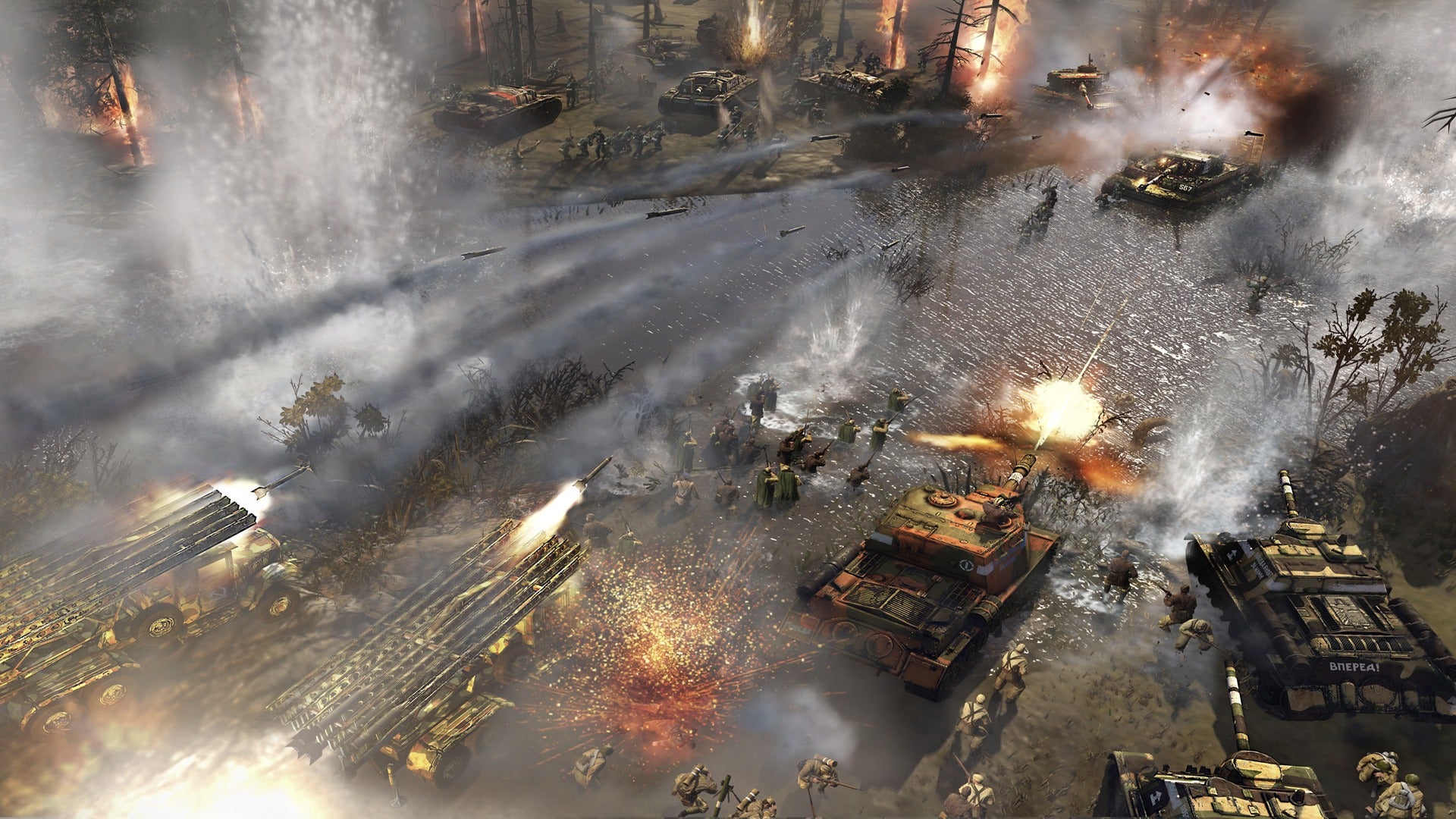
A birds-eye view of the HBO war series Band of Brothers. Strategy games have often relied on numbers. Countless tanks or an endless river of troops. There is a reason the "Zerg rush" of Starcraft has become a ubiquitous term for swarming your enemy with overwhelming numbers, even outside of strategy games. Company Of Heroes said no to all that. It is a real-time strategy in which you might have only a dozen men at your disposal at any one time. If you've been prudent, maybe a jeep is on its way to help your men pinned down by a machine gunner. Or a tank trundling along too slowly to be of any use for another two critical minutes. Here, cover fire is more important than numbers, and an engineer stretching barbed wire across a lone bridge can be as useful as a whole squad of riflemen.

It is car soccer. And the easiest video game to describe to your pals. Two to four players per team, each player in their own toylike rocket car, hoofing a ball around a stadium encased in transparent walls. The goal is goals. Rocket League is fun from the first minute. You can boost your car with a tank of refillable rocket juice, ping the ball with stylish flips, and soar through the air like an ascendant eagle looking for a header. There are plenty of skilled players out there (not to mention a lot of people passive-aggressively spamming the quickchat dialogue - "Wow! Nice save! Wow!"). But play with friends and it becomes the perfect waste of time. An idle kickabout for the modern world.
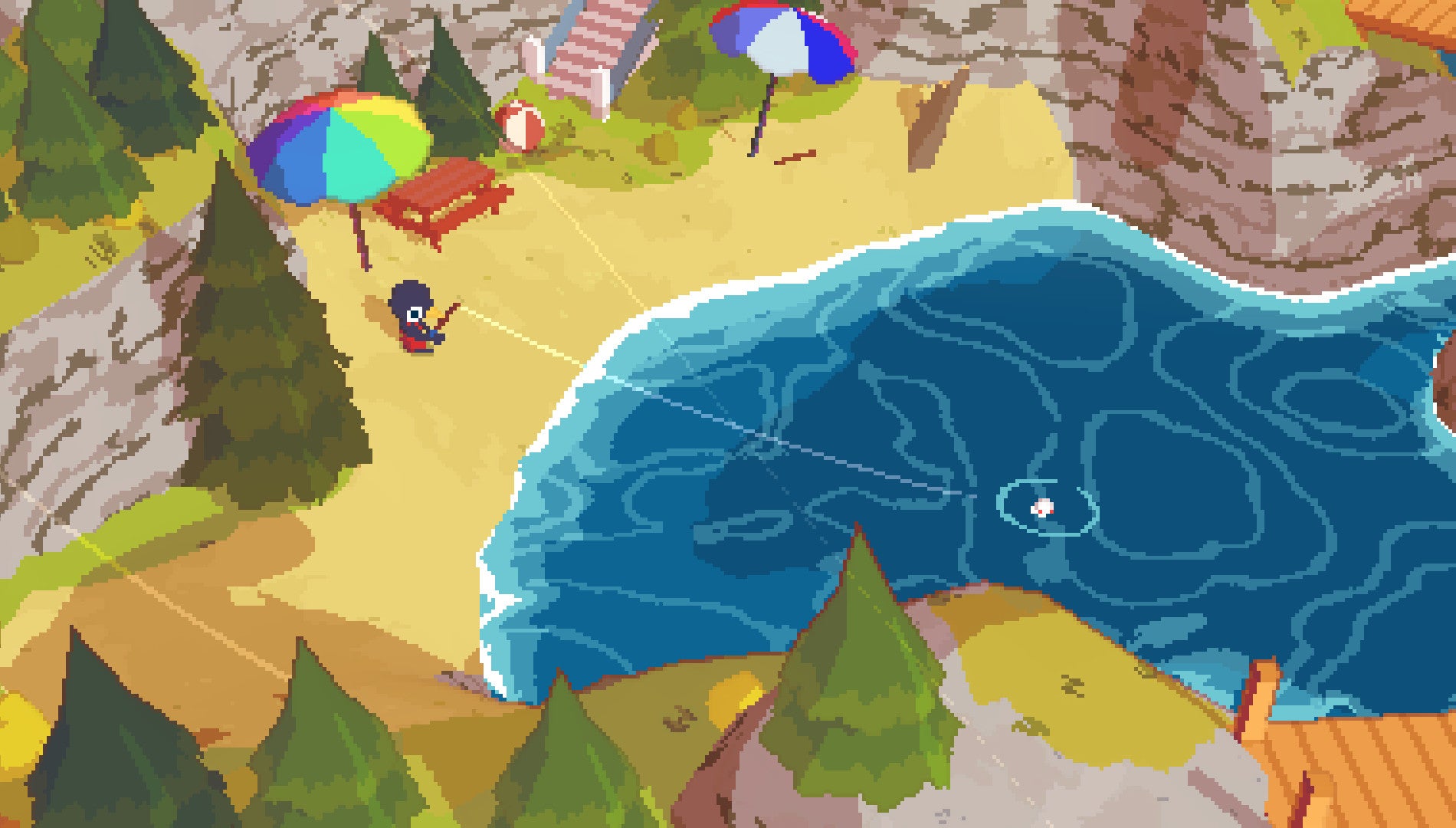
Animal Crossing for people who don't have the 900 hours to spare. A Short Hike puts you in the wings and beak of Claire, a birdwoman who is expecting a call from her mum. But the only place with good enough reception on her island is at the top of a mountain. So off you pop, hiking and gliding your way across the island. It isn't a straight shot to the end, of course. You can pause to do a bit of fishing for a friendly gull, or chat to a turtle on the beach about island politics (she wants to be mayor). This is a small, friendly world to get totally lost in, but not hooked on.
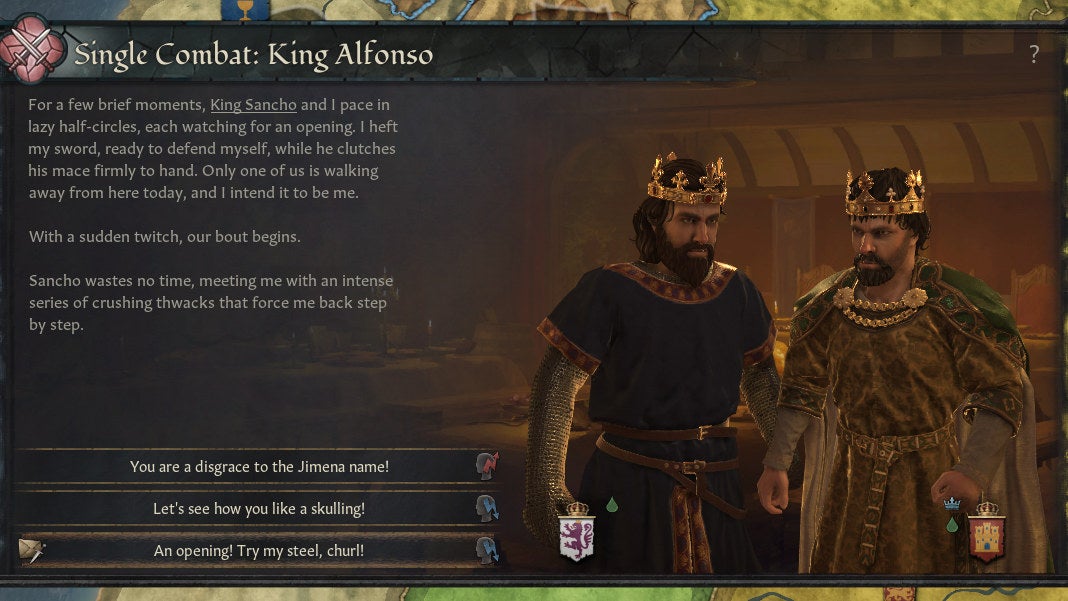
When you play Crusader Kings 3, you win or you die. And then your son inherits the kingdom and you keep playing anyway. Game over in this grandest of grand strategy games doesn't come from a single death. It comes with the death of a dynasty. So long as you have an heir (and maybe a spare) you will be safe. Of course, that doesn't guarantee your kingdom will be a healthy or thriving one. There is a lot to click on in this sprawling world map, and plenty of events popping up to keep a king or queen busy. The Byzantine Emperor wants to talk to you. Your bastard child is growing up cruel. And your spymaster has news from the shadows about "that thing" you want done. The game has been informed by years of its predecessor, Crusader Kings 2, which arguably is still the deeper game of medieval meddling. But this younger monarch is less cranky, and much more welcoming to guests. Besides, developers Paradox have a habit of rolling out years of updates for their strategy games. Every culture and expansion that CK The Second has gathered in its eight years of life, CK The Third is in line to inherit.
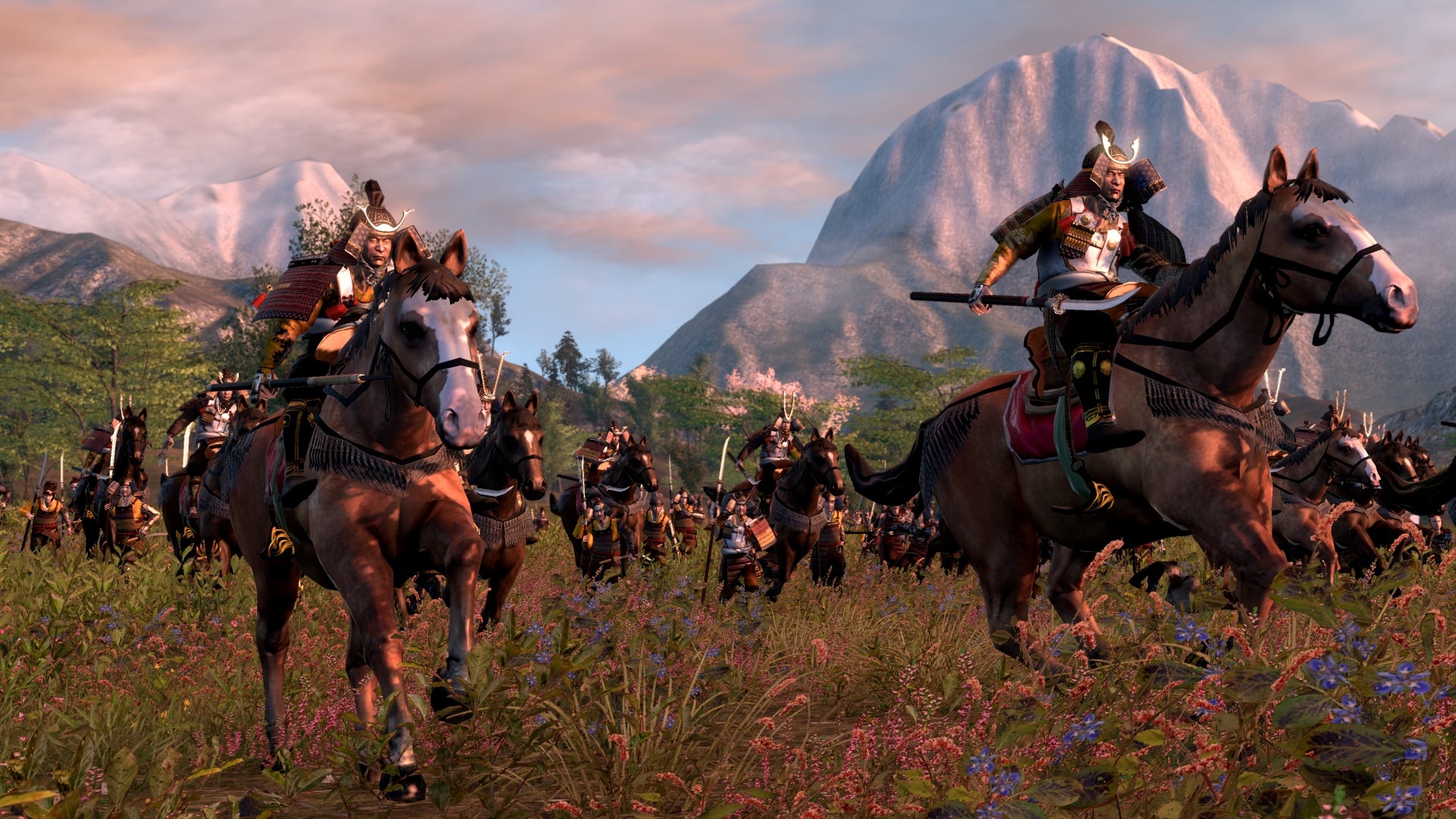
This biggo strategy game is not the newest in the Total War series of map-colourers. And it probably isn't the most widely loved. But it does land squarely in the Goldilocks zone between the flashy hero-managing of the recent Three Kingdoms, and the simplistic geometric shape-pushing of much older games in the series like Total War: Medieval 2. You are in an ahistorical struggle for the Shogunate, fending off irksome Christian rebels with one sword, while threatening a rival feudal lord with the other (samurai warlords dual-wielded, right?) There is a grand map of parchment to turn into known, fully realised 3D land, and plenty of close-up clashes to fall into, both on land and off the shore of Japan's ravaged coasts.

You are the Dragonborn. Your superpower is that you talk loudly and it hurts people. This first-person fantasy RPG is the fifth in a beloved series, and takes its player to Skyrim, a frosty, mountainous region of Cyrodiil, inhabited by the rebellious and Viking-esque Nords. Also, dragons. This is a massive open world, filled with off-the-beaten-track adventures, and ripe for modding. Skyrim is the best example of a single player phenomenon. It isn't as universally loved as the currents of gaming culture would have you believe (at least a couple of folks on the RPS team consider it hot cold trash). But it is the go-to classic for many, played and replayed so many times that the developers feel it savvy to re-release it every couple of weeks. (That's a joke, they've only remastered it once… so far). Still, in time it may become the most replayed game in history. At least judging by a popular bait-and-switch joke in which characters of other media fade out of consciousness and come to in Skyrim's opening cinematic, as if to say: what, you're playing this AGAIN?

Capcom's courtroom lawyer 'em up series of Phoenix Wright games are some of the best visual novels around - and the Ace Attorney Trilogy finally gives us definitive proof of that on PC. Bundling HD versions of the first three games of the series into one, finger-waving treat, the Ace Attorney Trilogy sees newbie lawyer Phoenix Wright fight for the lives of his clients, gathering clues to prove their innocence and finding flaws in witness testimony with a big bellowing cry of "OBJECTION!" All three games have devilishly good mysteries at the heart of them, and courtroom scenes are a real thrill from start to finish - especially when the climactic third game ties them all together. You could quite easily start with its more recent, flashier prequel, The Great Ace Attorney Chronicles, if you prefer - they both hold up as equally brilliant standalone experiences that don't require any previous knowledge in order to enjoy - but for us, the Ace Attorney Trilogy shows Wright in his best and purest form. And that, my friends, is the honest to goddamn truth.
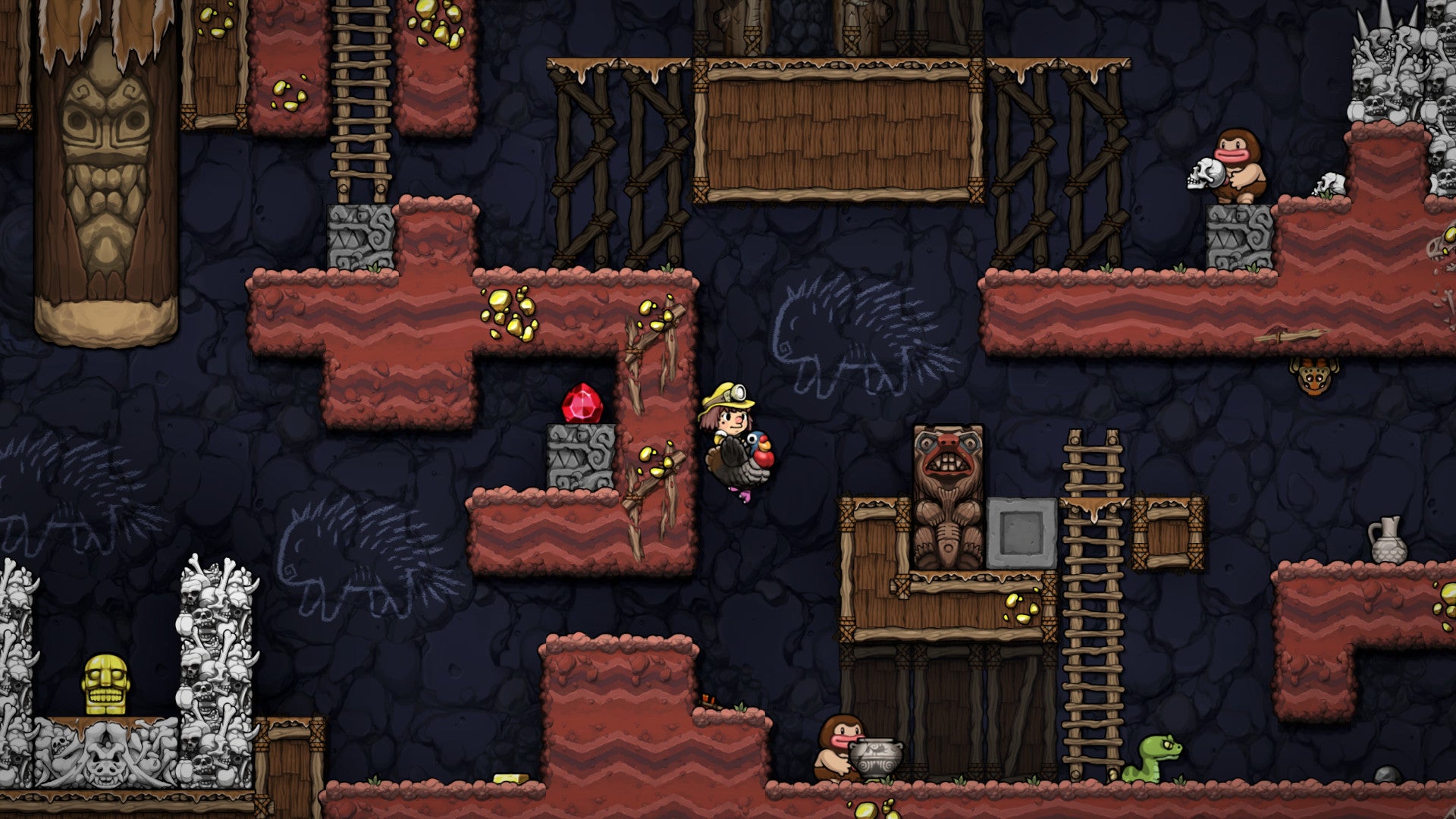
Q. How do you make the perfect platformer better? A. Moles. Earlier in this list, Celeste was described as "platforming at its peak". That is a good joke, because Celeste is about climbing a mountain. Sadly, it's unture. Spelunky 2 is peak platforming. It's just set underground, that's all. Everything about this platformer feels good and right. The ledge-grabs, the rope-climbing, the head-bopping, the item-pilfering. You will die often in these dangerous, randomly generated caverns. Sometimes you will only make it to the second world, where giant firetraps turn you to ash. Sometimes you will make it to the Temple of Anubis before being bitten to bits by a crocodile. Every attempt to reach the final level will feel juuust different enough to encourage the next one. It is so sound, so lacking in flaws, you could probably play Spelunky 2 every day for the rest of your life and be content to play nothing else.
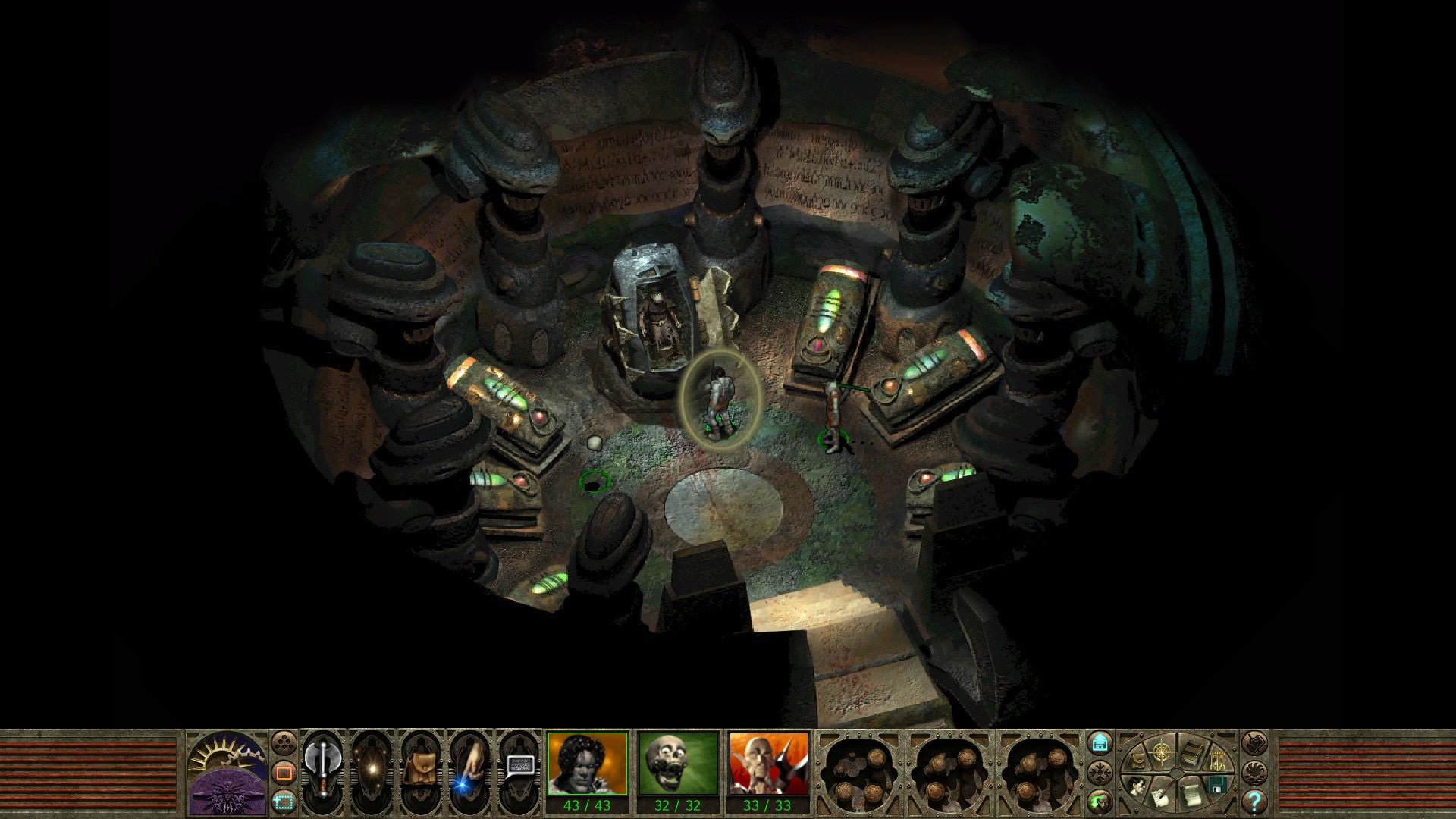
You have awoken in a morgue, and you have no idea about anything. It's a standard enough beginning for video games. Amnesiac hero needs to find out who they are and what just happened. In this isometric RPG, doing that requires a little legwork through multiple dimensions. The Nameless One (as you soon discover your character is called) is an immortal being who is resurrected with a new body and personality with every death. If PST is revered for its characters, then ol' Billy no-name is not the even the highlight. Take your pick: Morte, a floating skull. Ignus, a pyromaniac mage. Fall-From-Grace, a brothel matron with bat wings. As a good story to click through, it is getting on a bit. But a remaster has given some spit shine to one of 1999's many instaclassics.
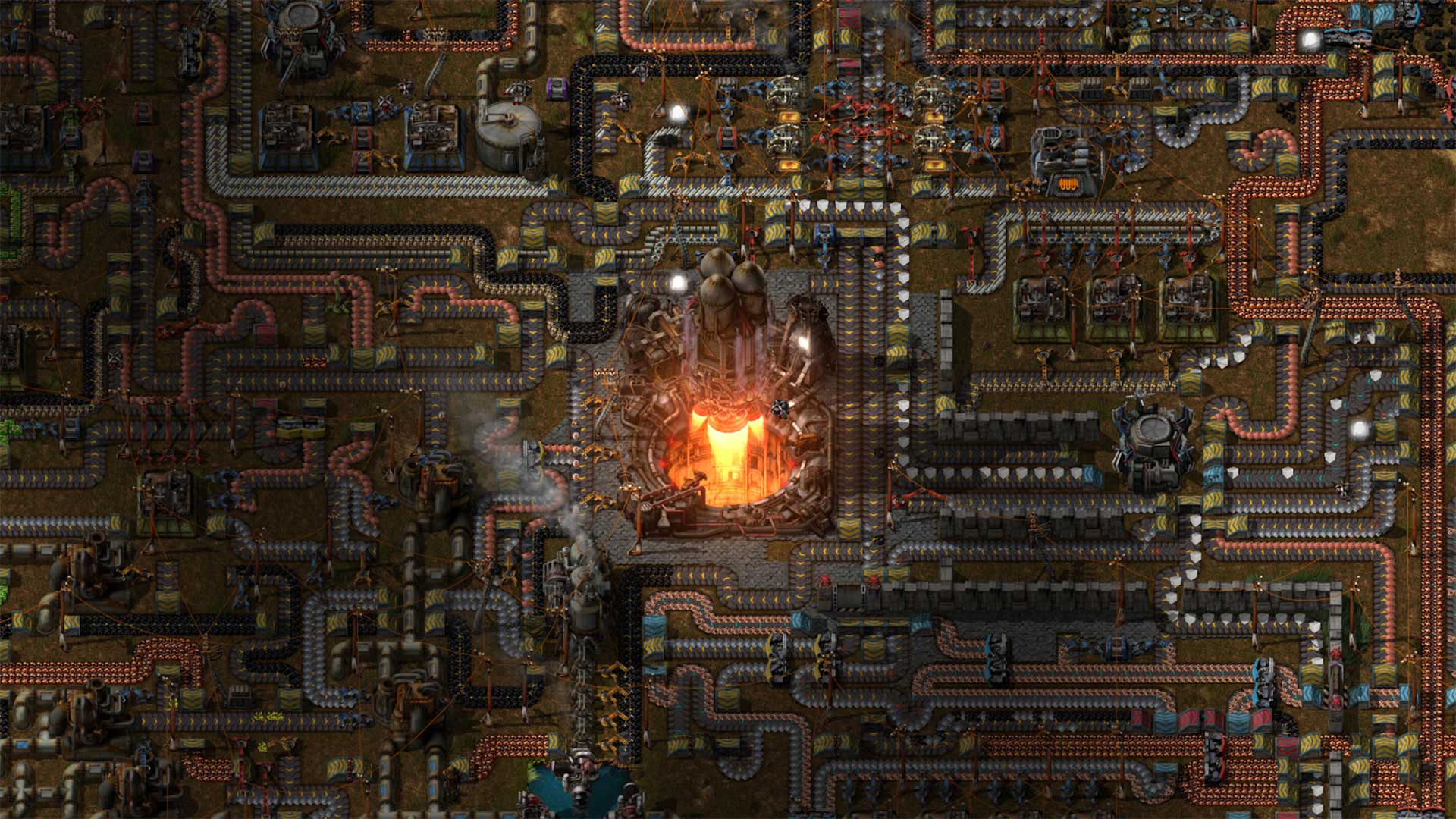
Henry Ford simulator without the union-busting. The principles behind the assembly line come to an untouched alien planet in this management sim. You start as a wee man on the surface of this pristine world, but full automation is the aim. The human element must be stripped out (and the alien element also because sometimes the wildlife likes to attack). This is a mechanistic self-determined puzzle for efficiency freaks, where position, timing, speed and quantity all have to be weighed up as you plop down little conveyor belts and electricity pylons to keep your factories running smoothly. In some ways, it is the final form of Farmville, a seemingly endless procession of upgrades and new goods keeps you from ever truly "finishing" your factory. But the pyramid of products is only the result. The satisfaction comes from zooming out and appreciating the huge machine you've made. Just, uh, try not to think about all the deforestation you've done...
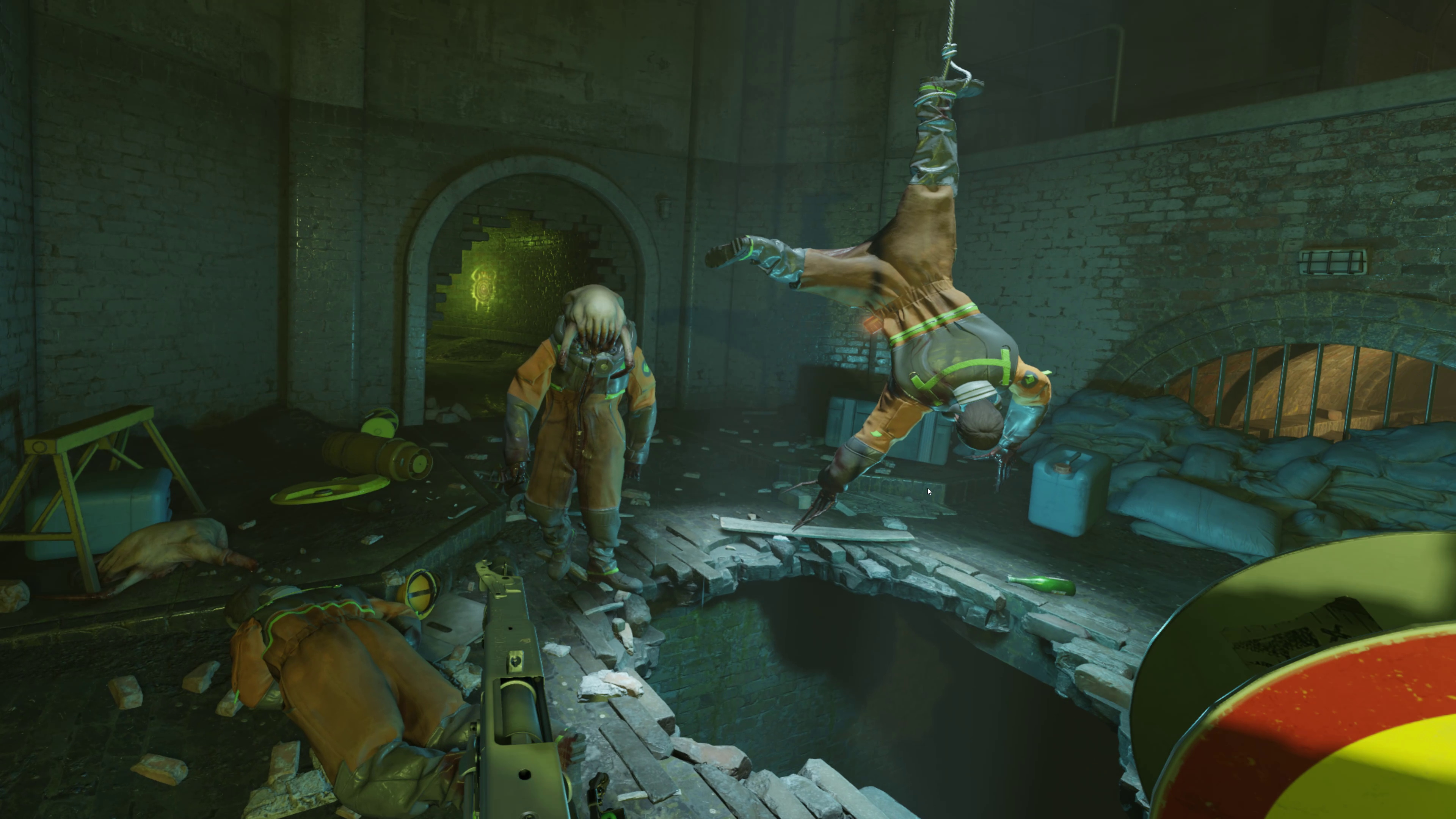
This is how you do VR. Just as Valve revolutionised first-person shooter design with their original Half-Life games, so too have they shifted the goal posts for what's possible in virtual reality with Half-Life: Alyx. There may be 13 years between this and their last foray into the world of Half-Life, but Alyx is clear, undeniable proof that Valve are still very much at the top of their game.
Set in City 17 five years before the events of Half-Life 2, you play as a younger Alyx Vance on a mission to rescue her father Eli from the shackles of the Combine. Shooting in VR remains as tense, taut and tactile as ever, and the screech of a head crab has never been more terrifying. After all, it's not your monitor screen they're leaping at any more, but your actual, literal face. Away from the fighting, though, it's the little details that really make Alyx sing, from scribbling on window panes with in-game marker pens in real-time, to playing the piano and simply watching bottles of liquid slosh around in your hand thanks to their impeccable physics. And what hands they are, too. Clad in a nifty pair of gravity gloves, they not only let you reach out and grab whatever object the Combine haven't nailed down, but they also double up as your health and ammo meters, elegantly removing the need for a traditional HUD. Is it worth buying an entire headset for? Maybe not, unless you have very deep pockets, but if you do have one, this is about as essential as it gets.
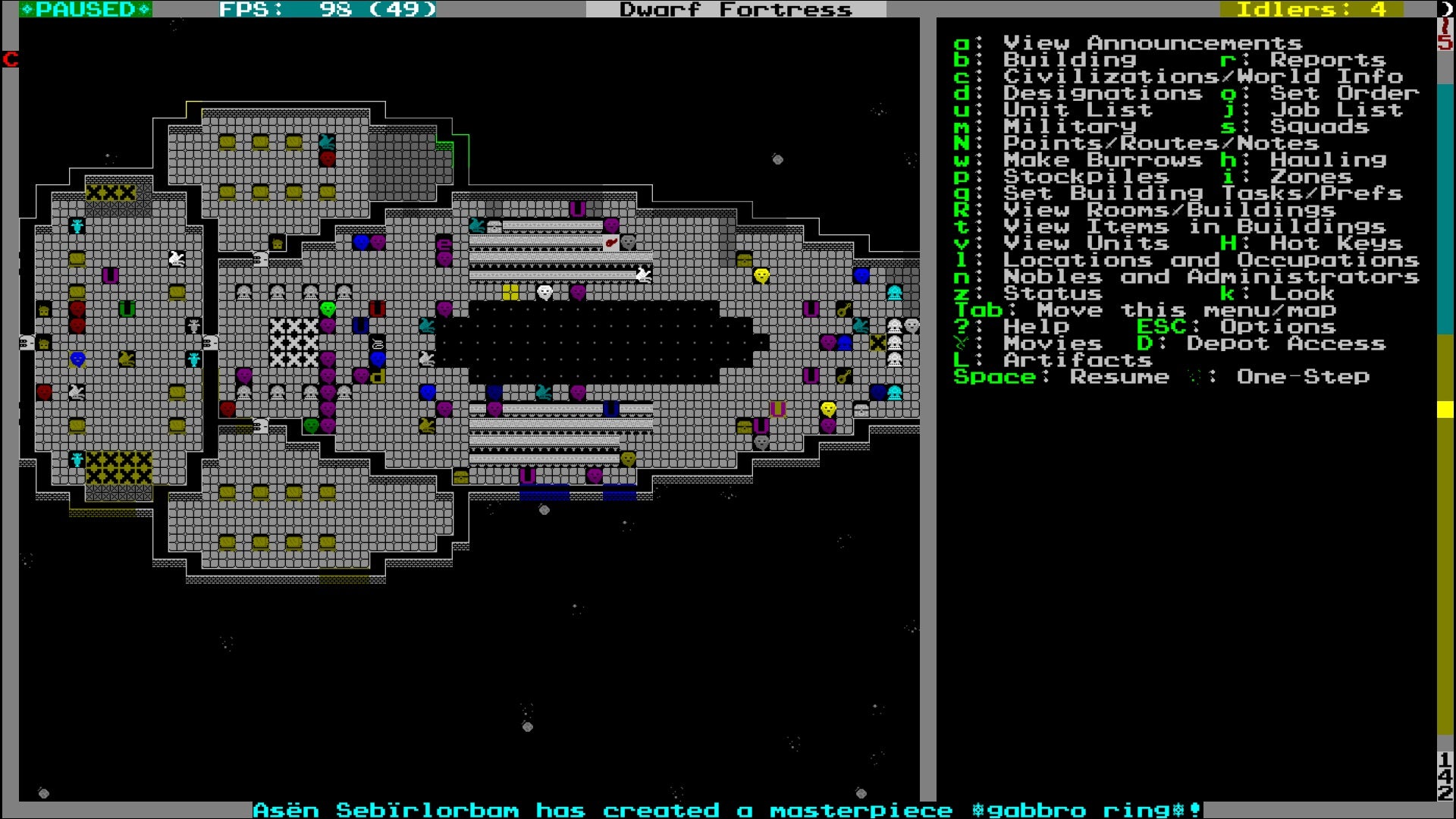
Sure, RimWorld is all right. But can you get drunk on mushrooms and build a subterranean zoo? Can you create a sept of bizarre and distinct heroes, each and every one named "Ulrist"? Can you break through the depths of stone to the Underworld itself? These are rhetorical questions and if you attempt to answer them, you will be expelled from this article. Dwarf Fortress is a management game in name, and a big bag of stories in effect.
It isn't an easy thing to learn or play. It's played exclusively with the keyboard, everything is presented in ASCII, and only by downloading graphical mods and fiddling with the innards can you make it semi-understandable. But it is free from the Dwarf Fortress website. And the reward for learning to speak its language, however, is being able to harness the power of the best story generator ever conceived. Various Dwarf Fortress diarists have chronicled the events of this random, chaotic fantasy world. Don't you want a chronicle of your own? If you just took one look at the ASCII screenshots and answered "sheesh, no thanks", maybe try waiting for the upcoming Steam version, which will (maybe) be a bit more accessible.
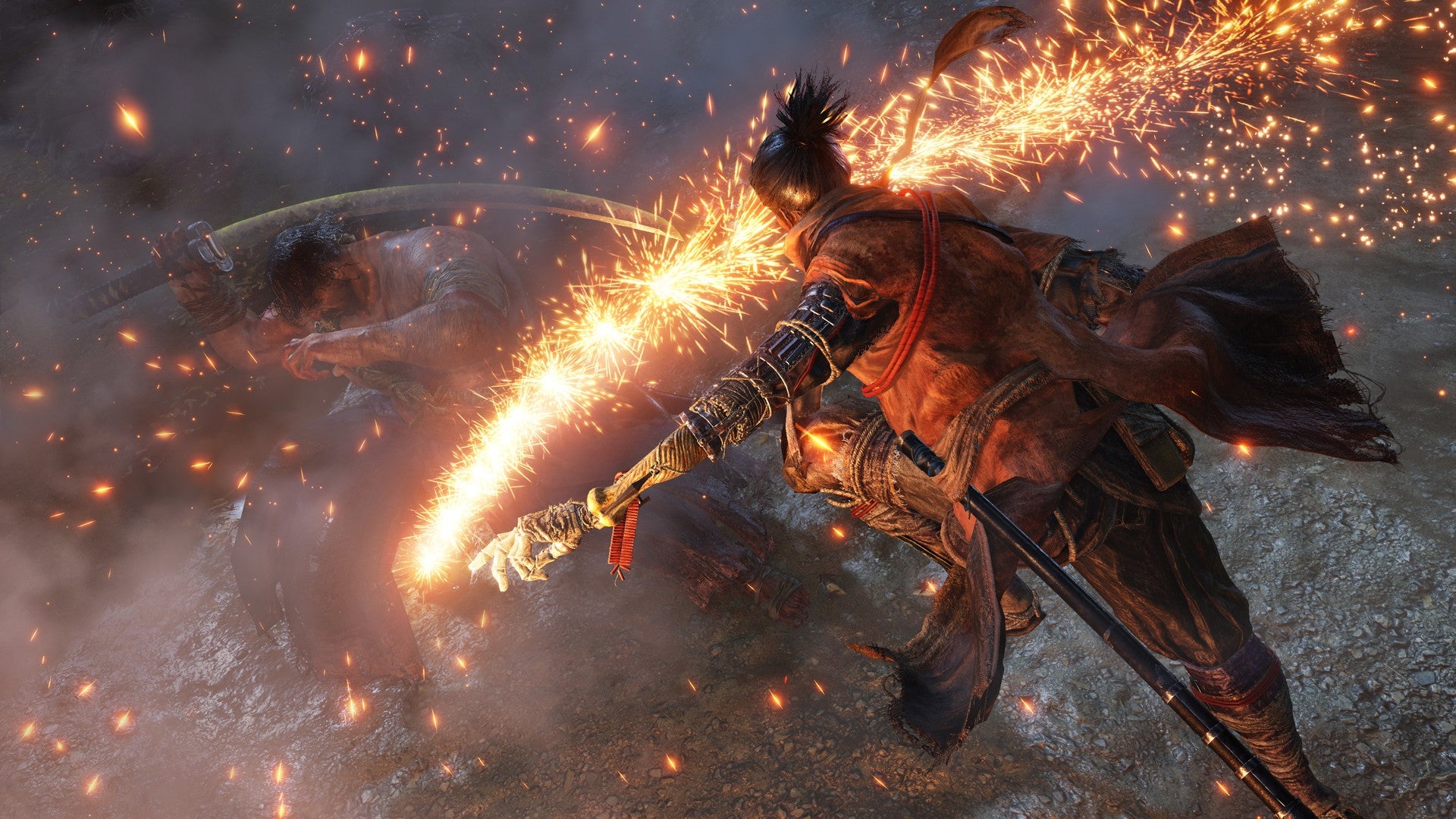
Sometimes you just want a general from Edo-era Japan to step on your neck. Sekiro is a brutally precise action game about getting disciplined. I mean conditioning your reflexes, not being punished by a disappointed father figure. Although, yes, that too. It's made by the same people who make Dark Souls, that other misadventure of masochism. But it is a different type of pain and a different feeling of reward.
This is a single-player sword 'em up, with an actual plot to go with it. As Wolf, the ashen-faced bodyguard of the child emperor, you must leap your way across rooftops and stealthkill legions of katana bros to bring some semblance of order to the warring states period. But bosses and minibosses will not make it easy for you. The only solution is to refine the art of deflecting strikes (don't worry, there's a button dedicated to it). Dark Souls teaches you how to defend. Bloodborne tells you to press the attack. But Sekiro's wisdom is in applying both principles simultaneously. When you finally clock the patterns and timing of an enemy's spear, or a forgotten mentor's throwing knives, the resulting finale of clashing steel is more like a beautiful, choreographed routine than a scrappy fight to the death.
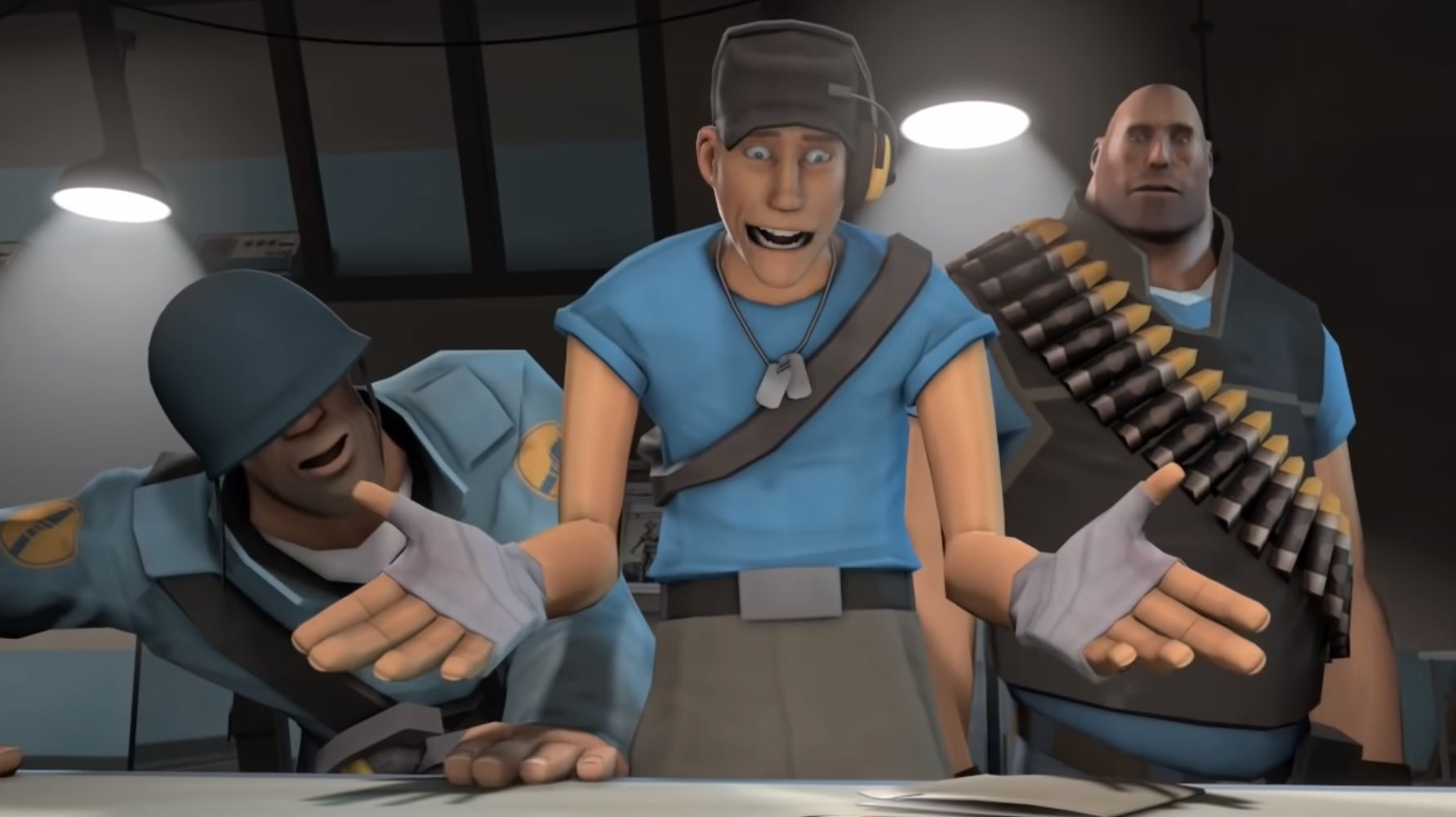
The hero shooter for people who don't want to learn the names of thirty weirdoes. Here you've got nine simple roles. A spy, a soldier, a heavy weapons man, a flamethrower trooper, a sniper, a demolitions man, an engineer, a medic, and a scout. Their goal: to capture the enemy team's briefcase of paperwork. It's a fast-paced multiplayer shooter, yes. You will get shot in the bonce from across the map. But the chaos is manageable. There is nobody called "Wanda Wildcard" with 5 distinct powers and 2 ultimate abilities that fill the arena with one of the 12 coloured attacks currently turning a ballroom into total havoc. Team Fortress 2 calls a spy a Spy. Yes, it has evolved since its 2007 debut. It has gone free-to-play, for example. There are new maps and modes and choices of weapon. But at its core, this is still that solid, funny shooter of attack, defence and fashionable headwear.
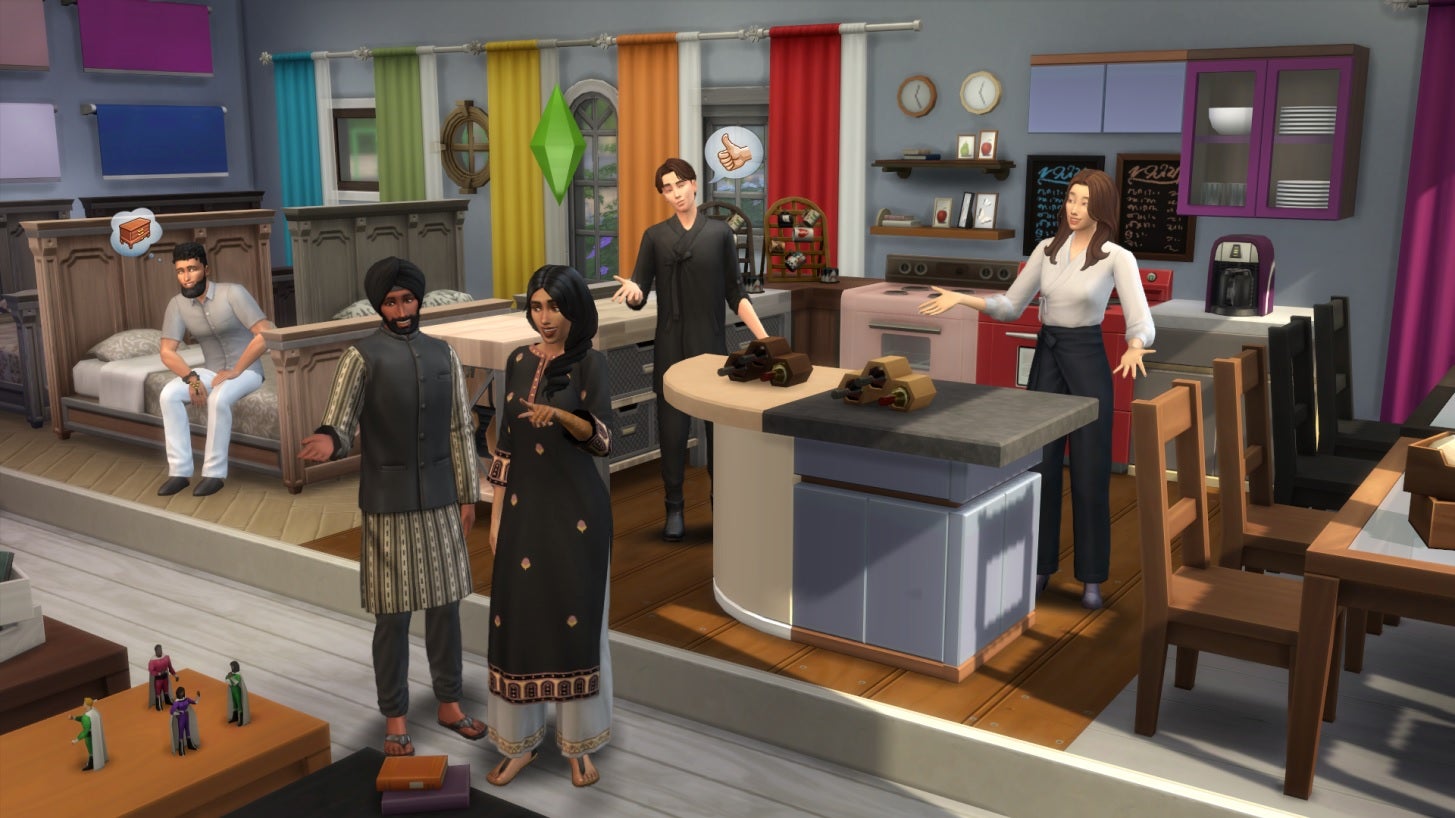
Interior design simulator. The Sims has always had that doll's house appeal of offering you a way to build your dream home, your fantasy family. You can create a house, drywall by drywall, put nice art in all the hallways and fill the bedrooms with friendly people who will chatter in nonsense Simlish about food and sports. Or you can fire up one of the game's seemingly infinite expansion packs and get specialising. There are island vacation homes to be made, chalet mountain retreats, dogmatically ecological households, and teeny tiny cottages that bring yet more shame to the "cosy" flats of inner city reality. You make your favourite surreal bedrooms from other video games. The Sims 4 doesn't stop at letting you build dream homes. It encourages you to build mood homes. Places for your miniature housemates to rest while you mumble through catalogues to find whatever decor you fancy that evening. In short, it is the only way many of us are ever going to own a nice house. This is a depressing thought. But imagine if there was no Sims 4 to soothe it away.
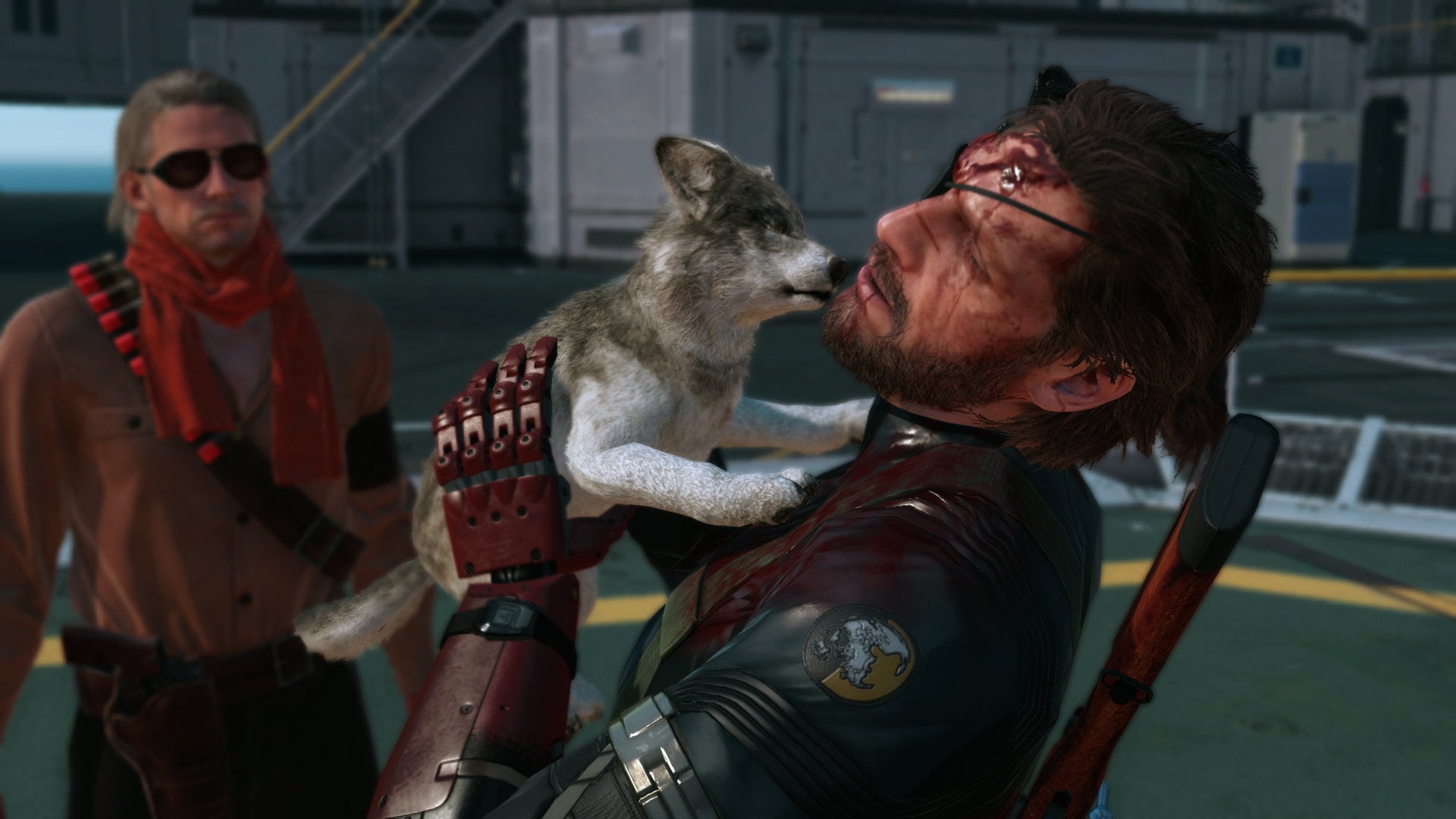
Okay, let me lay it all out for you. 60 years ago Big Boss, aka Naked Snake, was sent to Russia on a mission to… actually, let me start again. At the turn of the century, the Shadow Moses Island Incident shook the US establishment when… no, that's not a good place to start either. Okay. In 2014, the shadow organisation known as The Patriots had extended their influence to… Ach, this is not working. Look, there's a lot going on in the Metal Gear Solid series, and to pick through the conspiratorial world history of this trivia-obsessed universe is a mission even the most leathery of special ops agents would refuse.
MGS V: The Phantom Pain is a glorious third-person muckabout not because of the winding nonsense happening on-screen between levels (well, maybe a little bit) but rather because of the wide open world. You have the carte blanche of a lone soldier operating behind enemy lines, under the orders of no government. You can deploy inflatable dummies on the road in Afghanistan and lie in the sand nearby until a truck hammers the brakes and the drivers get out to apprehend the balloon man. Then you can steal the truck and drive it into the desert. You can run back and tranquilise the drivers, and take them into the desert too, and wake them up surrounded by a circle of more inflatable dummies. No, this has nothing to do with your mission. You're supposed to be infiltrating an outpost and bringing a hostage to safety. But look at these idiots. This is much more fun.
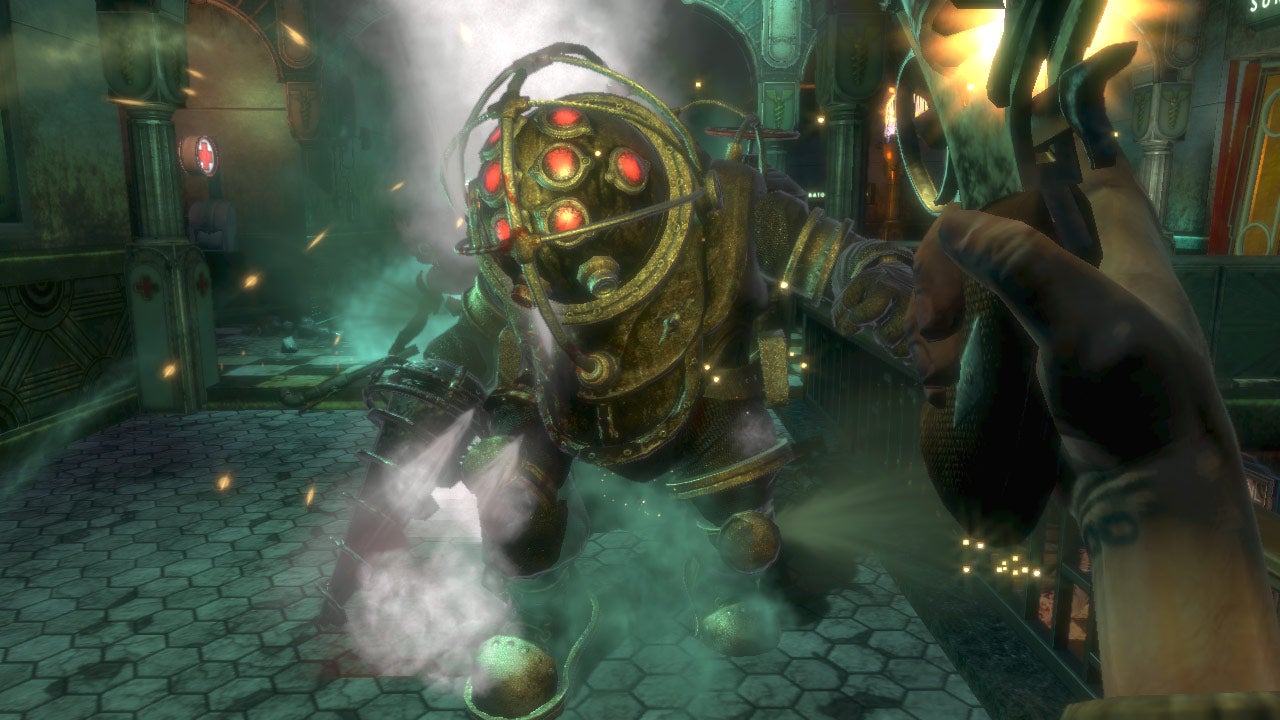
First-person shooter with a story that is the twisted collision of Jules Verne and Ayn Rand. You are the survivor of a plane crash, washed up at a remote lighthouse in the middle of the Atlantic. Soon, you find yourself deep beneath the waves with a big wrench and a shotgun. C'est la vie. You should probably blast those shouty mutants crawling on the ceiling. For all its schlocky shootiness, BioShock suffers the indignity of being one of the most discussed games in writer circles. Journalists and game designers have pored over every detail to back up their readings of the game's polemic. This is the "here's my take" game of a whole generation of critics.
But dive in with hands-up willingness, knowing nothing but its subaquatic setting, and you are not going to be thinking about any of that. You'll be too busy hacking helicopter drones and setting oil on fire and getting both heebies AND jeebies from the excellent horror-flavoured set pieces. If BioShock is a theme park ride of animatronic story-telling, then it is a really good ghost train. You should leave your skepticism on the grass outside and embrace the nervous scares (hell, bring it with you and appreciate how good the props look). It is only fair that a game with such a strong opening (and one infamous moment in the mid-game) be cursed with a limp finale. You can't have everything.
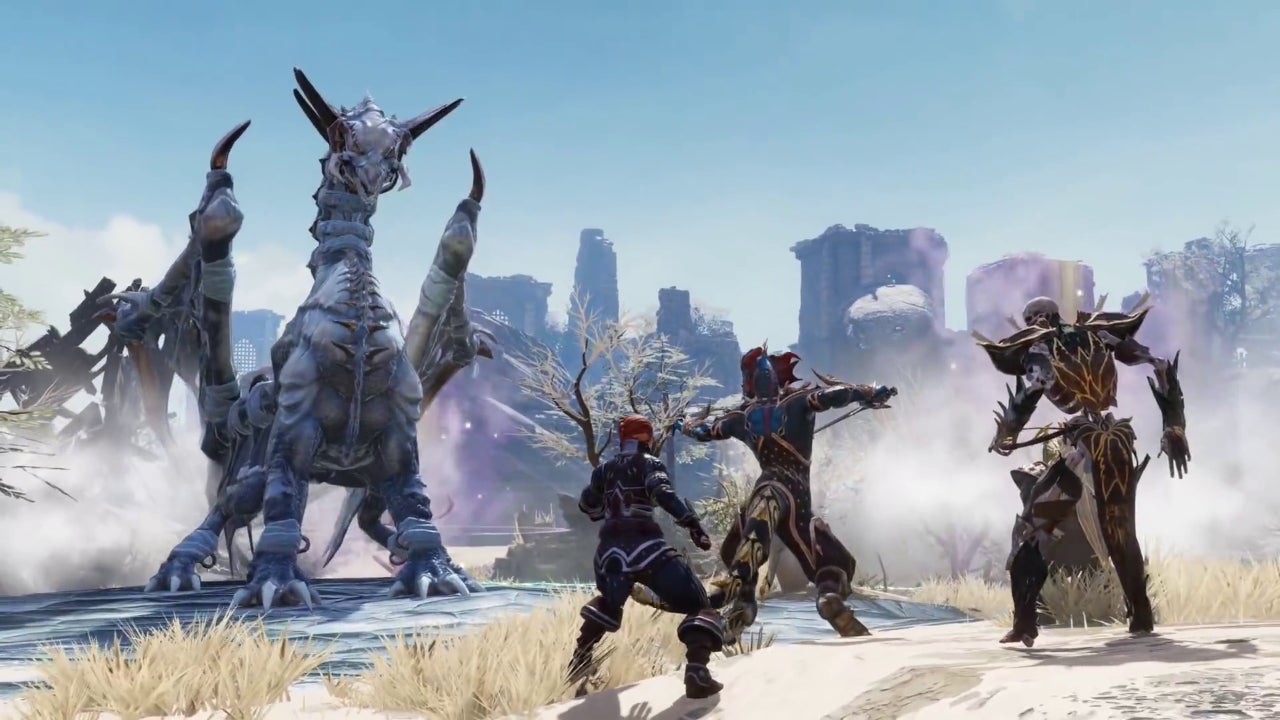
If you ever wanted to play Dungeons and Dragons but are too socially anxious to play-act the role of a stuck-up lizard prince, perhaps Original Sin 2 is the game for you. This is a fantasy role-playing game that throws you onto a prison ship with a band of scoundrels destined to become the "loveable" kind of rogue at some point. The combat is an isometric turn-based affair that encourages you to mess with the environment. Set oil slicks ablaze, electrocute soaking enemies, turn that corpse into a bloated bag of flesh and force it to fight for you. Just magic things. It's also, er, quite big. There is a central tale about the gods and the fickle games they play with this gang of potential chosen ones. But there are also enough off-beat sidequests and hidden storylines to inspire, oh I don't know, 82 episodes of a "good cop, bad cop" style Let's Play series. It's a huge, chunky RPG that will keep you enraptured for weeks, possibly months, is what I'm saying. And that is before you get into the open-ended co-op or the custom adventure creator that lets you design your own stories to take friends through as a benevolent (malevolent?) gamesmaster.
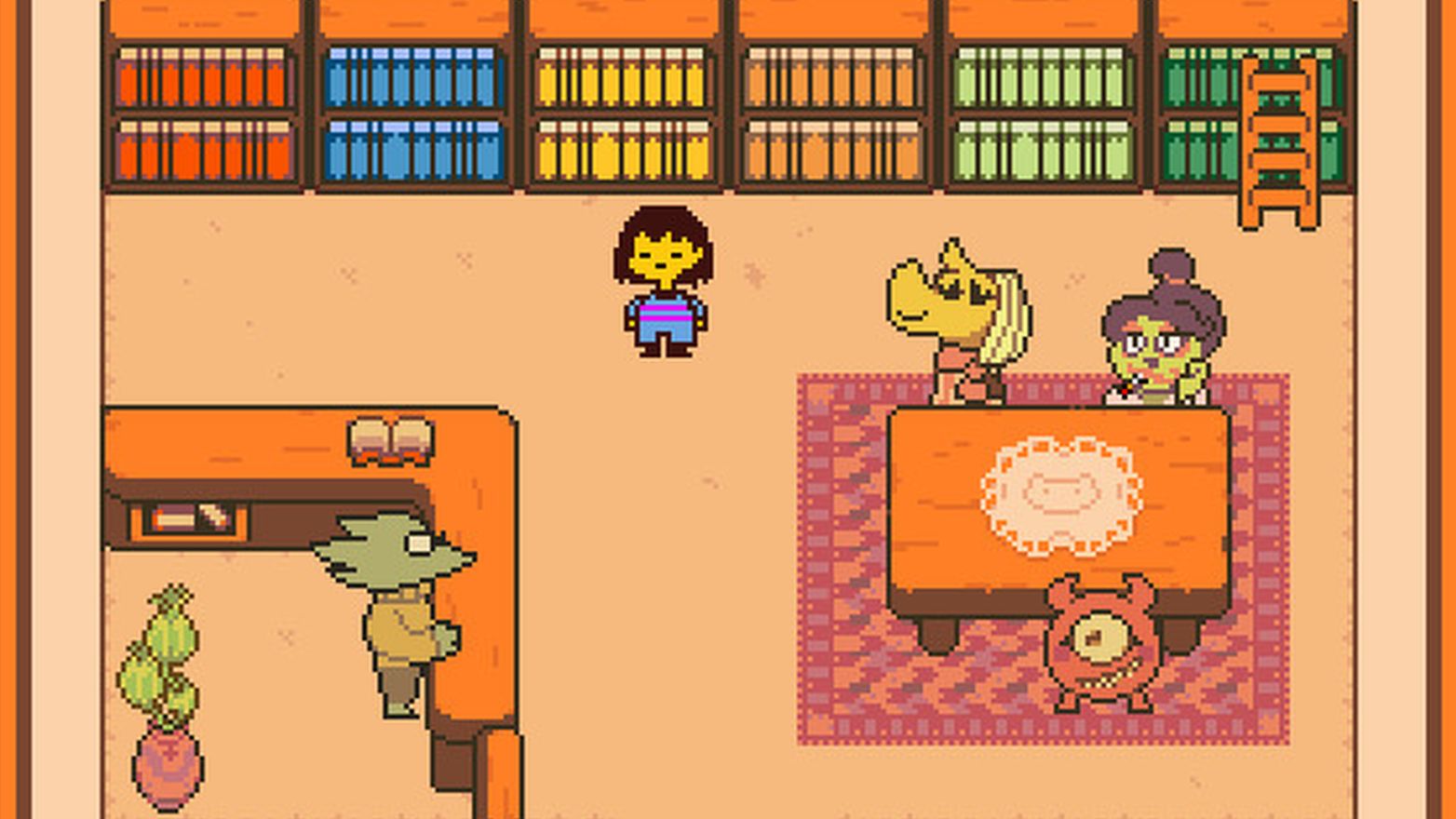
You could describe Undertale as the plucky underdog of the RPG scene. But that would be ignoring the hundreds of thousands of fans standing behind it with bats and clubs and socks full of snooker balls. Undertale is a plucky, pixelly story about a silent kid who falls into a world of comedy skeletons and sinister flowers. It pokes gentle fun at outdated JRPG tropes, like turn-based battle menus and tileset floor puzzles. But you don't need to be an alumni of Final Fantasy or Pokémon to enjoy the sheer density of its absurdo comedy. There are boney knights who pride themselves on being monstrous, even though they really just want to be friends. There are cute, wordless dogs whose necks stretch to the heavens and back. This is a sweet, well-meaning journey through a world whose only real darkness comes from its traditional black JRPG void. Unless, of course, you ignore the message of the game entirely...
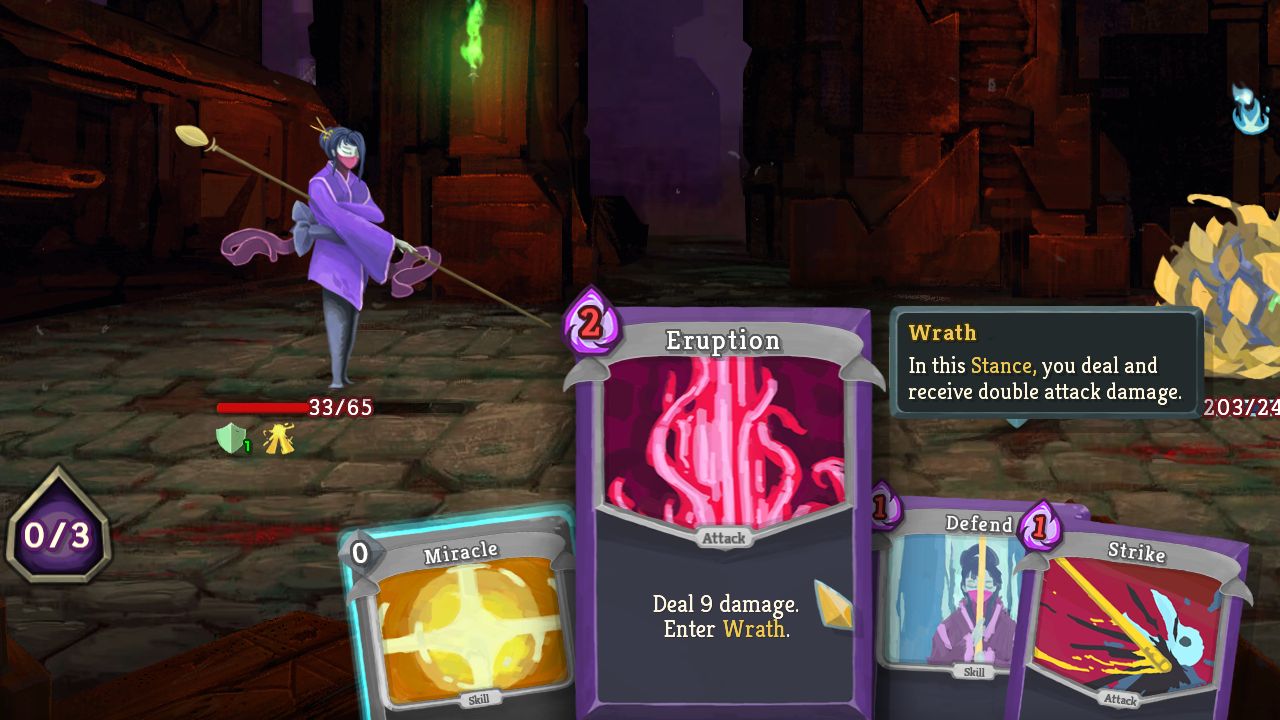
Basically spawned an entire genre overnight. Slay The Spire is a card game about cutting your way through a...
Comments
Post a Comment